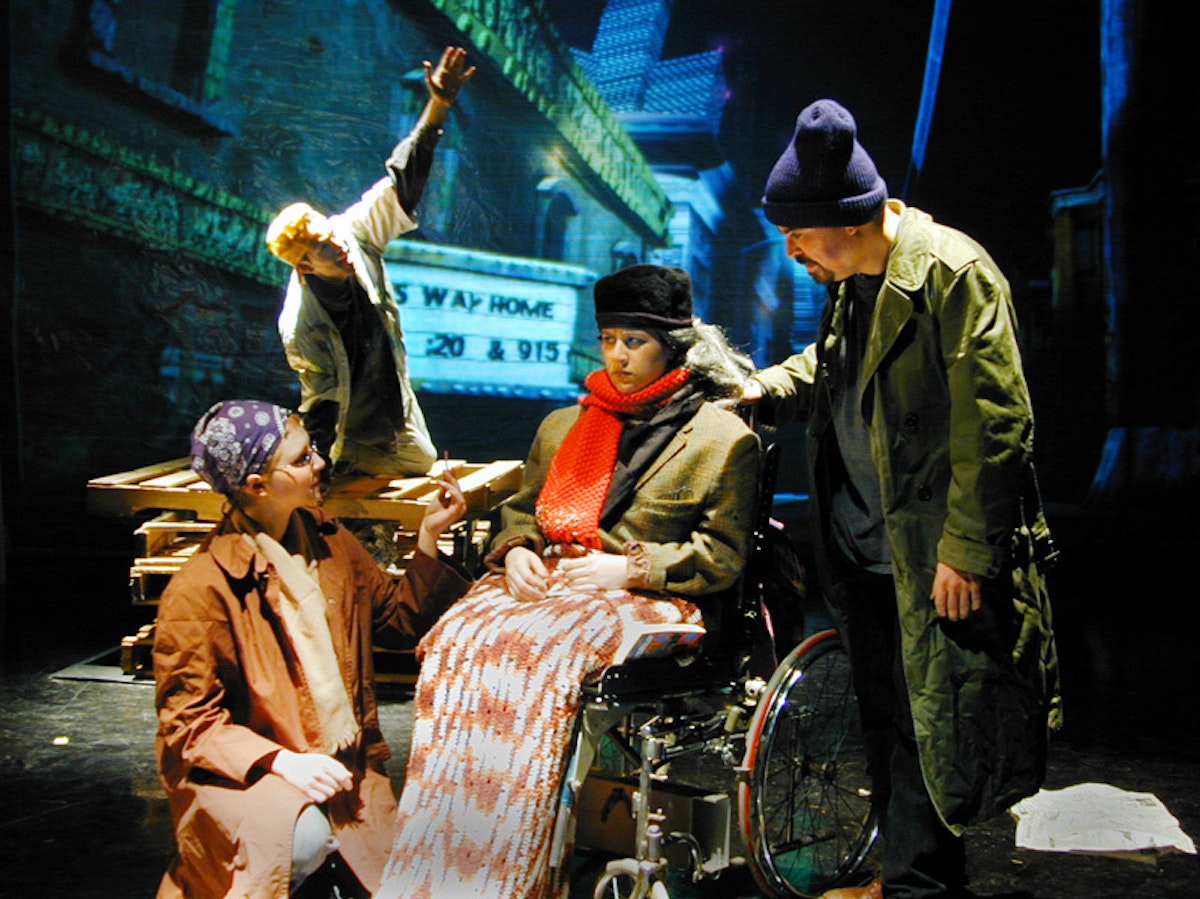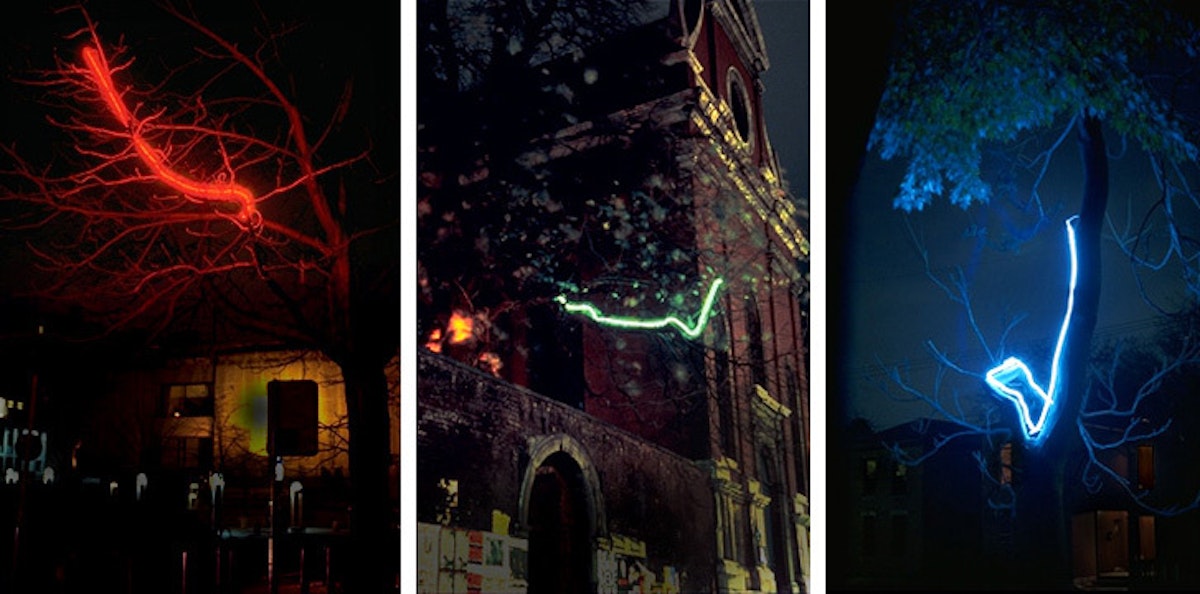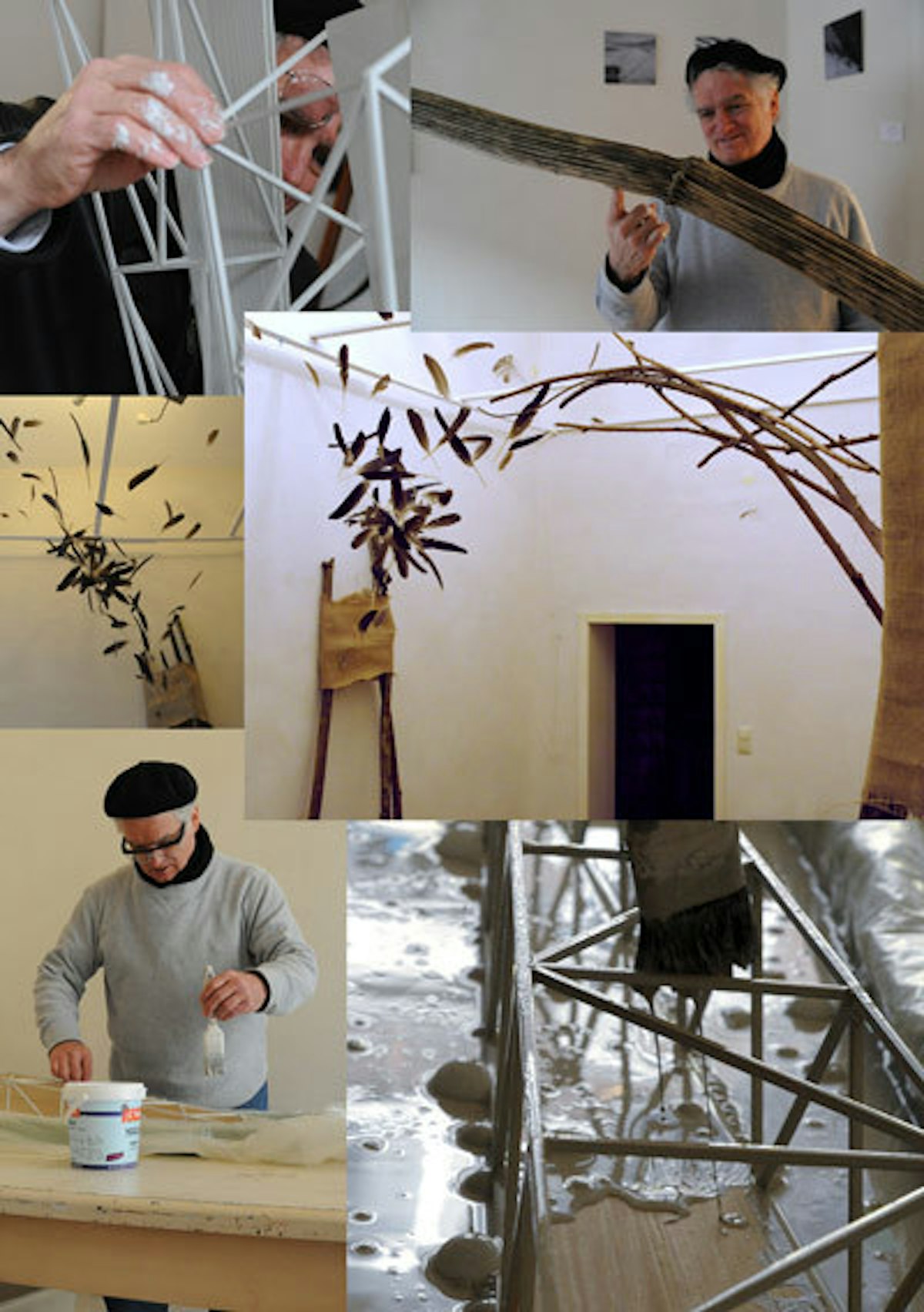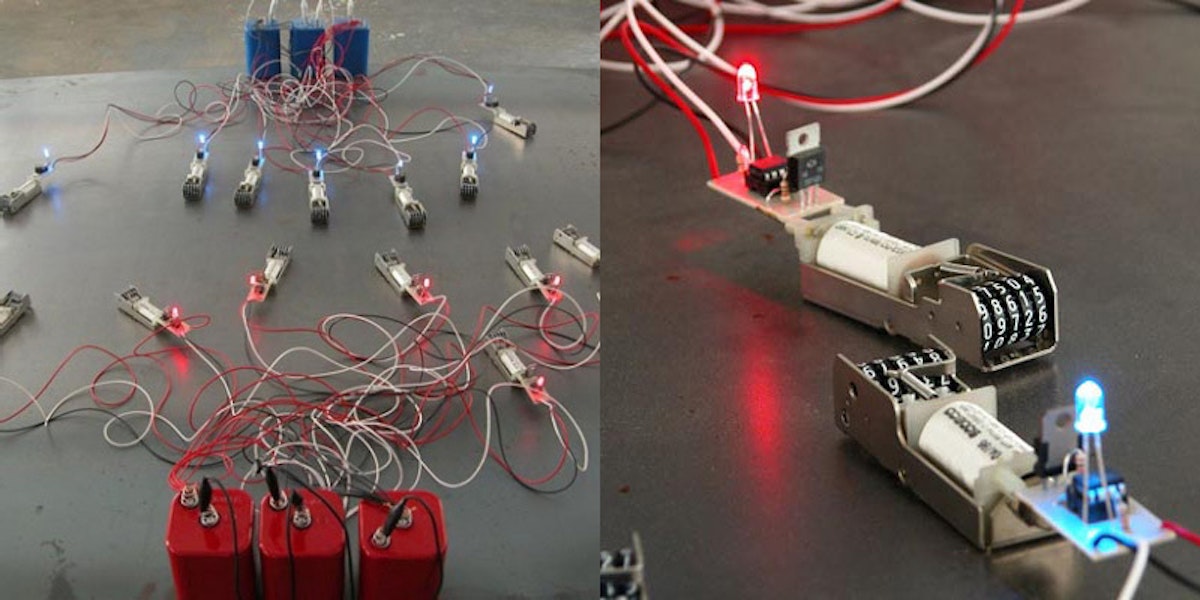Michael Rodemer Retires
Since 1996, interdisciplinary artist and professor Michael Rodemer has broadened the imaginations and skills of Stamps students through kinetic and interactive sculpture.
Many in the Art & Architecture building have fond memories of the giant Rube Goldberg Machine installations created in the subterranean West “Wall Hall” as part of Rodemer’s studio 3D classes. Rodemer will retire at the end of the Fall 2020 semester after completing a research project that has the potential to support future teaching of kinetic media.
Rodemer’s work includes sculptures in bronze, neon interventions in trees in Germany, interactive installations incorporating spoken word, and collaborations in the performing arts. His work is reflective of his interdisciplinary education (M.A. in Comparative Literature, MFA in Sculpture), expansive skill set, and boundless curiosity. Rodemer’s decade-long collaboration with composer Stephen Rush resulted in the creation of three operas, including vidGod (2001); ¡Stop Blaming Columbus! (2005); and Two Candles Burning (2009), as well as pieces for dance and instrumental video works. His work has been exhibited and performed across the globe, and he was the recipient of two Fulbright Senior Scholar fellowships to Germany.

As an educator, Rodemer has taught across the Stamps curriculum and developed courses that focus on new and traditional tools and techniques. Electronics, interface development, and interactivity were main components of his teaching and practice long before these became standard tools for artists and designers. In fact, it was necessary to develop the tools with which to make work. While on the faculty of the School of the Art Institute of Chicago, he collaborated with student Chris Csikszentmihalyi to make a cheap and versatile circuit board for interactivity that proved liberating in its possibilities; upon moving to UM in 1996, Rodemer, with support from the U, enlisted technician Ed Bennett, with whom he developed the NIQ EZ-I/O, a most widely influential tool in the area of new media. It flourished for several years, empowering some one thousand artists, musicians, and engineers around the world to more easily create their work, before it was eclipsed by the Arduino circuit board in the early 2000’s.

Reflecting on his time in the studio with Stamps students, Rodemer remembers the empowerment first-year students often displayed after receiving welding training in his Studio 3D courses:
“Welding is easy to learn, yet offers enormous strength and flexibility in working with steel. The process is admittedly a bit intimidating, though: one is cloaked in heavy protective gear, it’s hard to see through the helmet’s dark glass, and with a mere flexing of a finger, a white-hot flow of electrons leaps out to melt the steel, just an arm’s length away. I came to expect an exchange like the following:
Student (lifting their helmet with a gloved hand): ‘I’m scared.’
Me: ‘I know.’ (pause) ‘That’s why you need to do this.’ (pause) ‘I’ll watch while you do it.’
A few moments later, two pieces of steel are joined into one. The student turns to me, lifting their helmet to reveal a smile as bright and powerful as the welding arc, a smile that said, “I can do – anything!” Life gives us such transformational experiences only rarely; I got to witness them again and again in Studio 3D.”
Rodemer sought this kind of transformation in other areas of teaching as well.
In 2009, Rodemer taught a course called Bildhauerei (English translation: Sculpture) exclusively for students who’d taken a year or more of German language instruction. The course was taught entirely in German and offered an experimental approach to language learning.
“The thought was that this would take pressure off language learning by not grading it, but rather by focusing on another activity,” Rodemer said.
The course received appreciative student evaluations and garnered Rodemer an invitation to become an Affiliate of the Department of Germanic Languages & Literatures at the University of Michigan.

Another result of Rodemer’s willingness to try new things was an invitation to be an instructor for the Michigan International Seminar for Undergraduates in Winter 2012. Organized by U-M’s International Institute, faculty from across the university came together for this course offering to explore different disciplines through an international lens. Rodemer’s section of the course was called "International Influences: Catalyst for Creativity" and focused on how early American art responded to the experience of “otherness.” Students in his course made art about their own identities and mounted an exhibition in the gallery of the International Institute Gallery in the School of Education Building.

Microcontrollers, counters, LED’s, batteries 2004
Rodemer’s service to the Stamps School has included organizing shows of student work, leading multiple student study trips to Germany and the coordination of the 2019 New Media Caucus symposium.
Rodemer plans to spend his time in retirement thinking, making, and reflecting. He offers words of wisdom to the next generation of artists and designers “If you can afford it, only take on projects where your heart is really in it. Drudge work costs you more than it’s worth.”